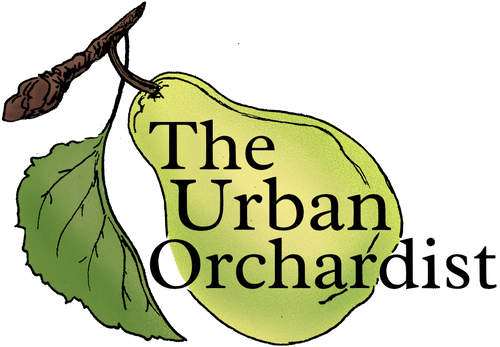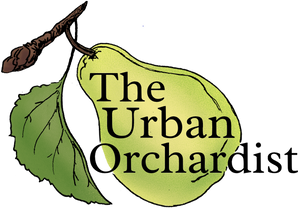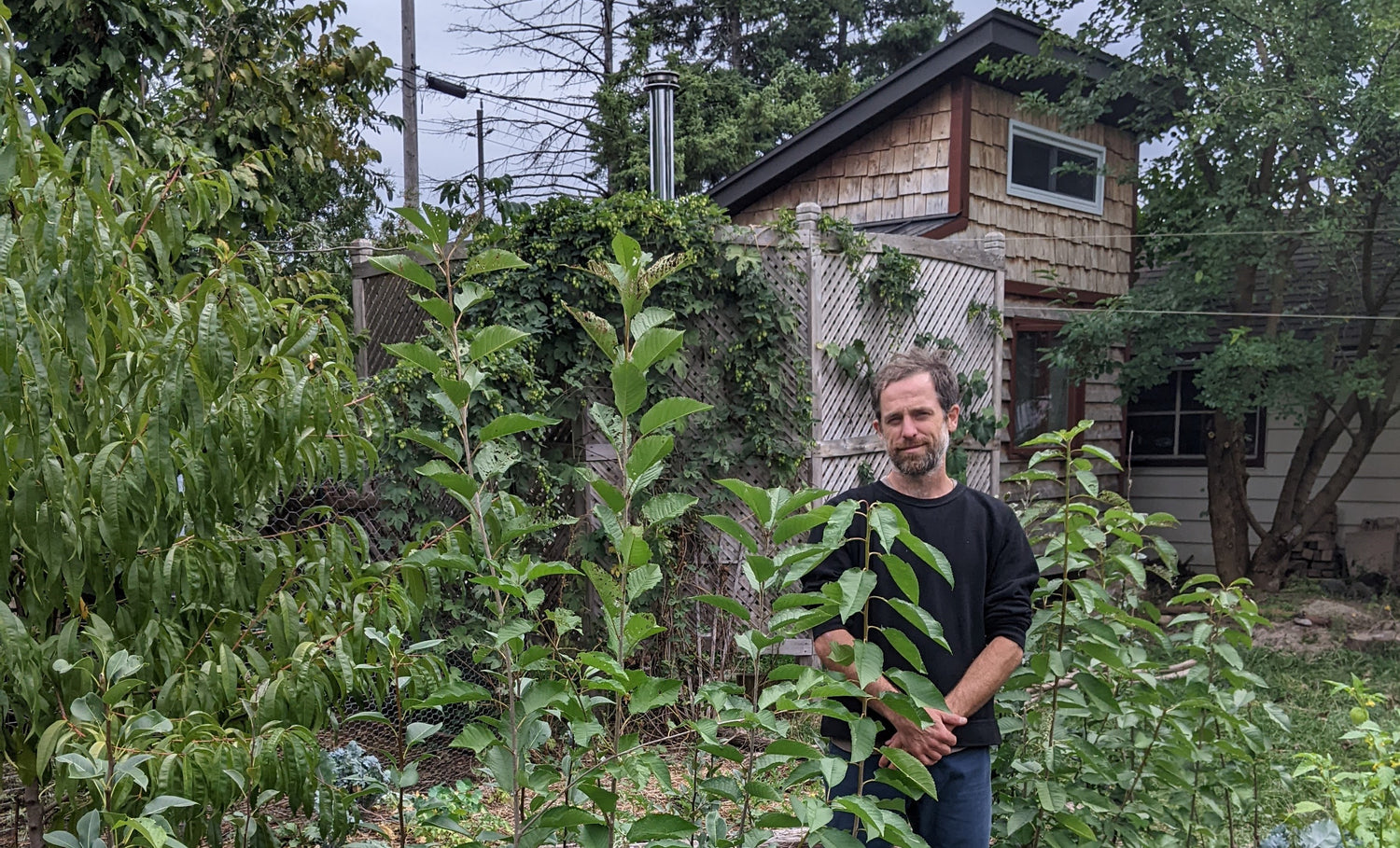
About The Urban Orchardist
An Introduction
Hi. I'm Matt Soltys, and I founded The Urban Orchardist in 2021 to provide services related to fruit trees and small orchards in southwestern Ontario. I operate a unique fruit & nut tree nursery in the Guelph area, I consult on orchard care, I prune fruit trees, and I teach on these subjects.
I've focused on fruit tree horticulture since 2005, and have developed my skills through a mix of hands-on mentorship, scientific study, and grassroots community organizing. I've managed a community orchard at Ignatius Farm and mentored under their former orchardist (2019-2022), completed a Bachelor of Arts & Science in biology and philosophy at the University of Guelph that focused on plant science (2017-2021), operated the Guelph Fruit Tree Project (2006-2010), completed a two-week permaculture design certification (2005), and co-founded a community food forest in my neighbourhood (2023).
I love my work and am passionately dedicated to contributing to a more abundant and delicious world.
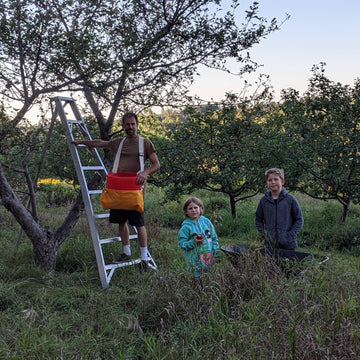
A bit more about me
I'm a fifth-generation Guelphite of mostly Irish and Polish ancestry. I'm a father to two amazing children, and my partner is an accomplished midwife. Together we live in the Ward, my favourite neighbourhood in Guelph, where since 2010 I've been turning our urban lot into a food forest, with more than 25 species of fruit and nuts.
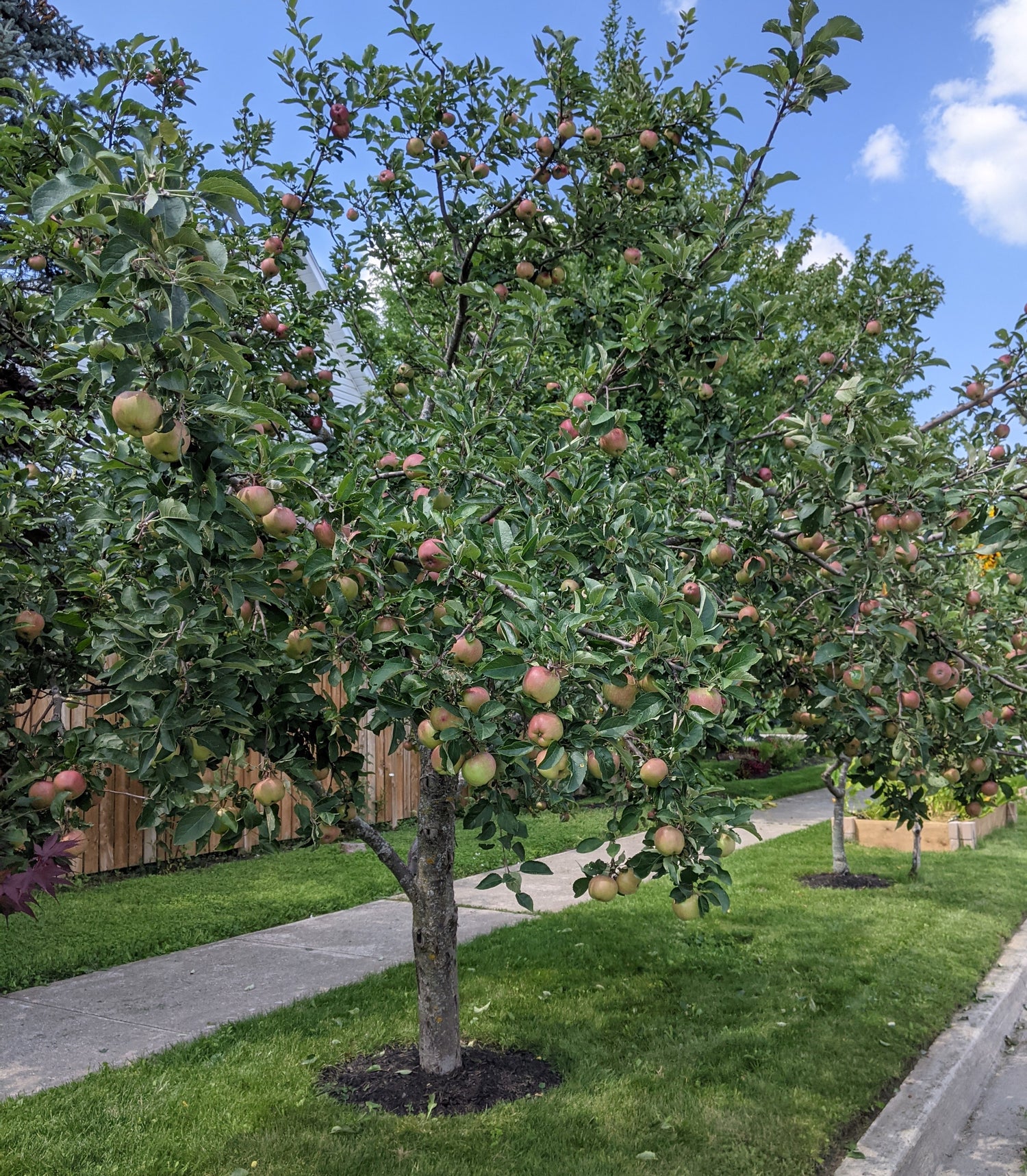
The Urban Orchardist Vision
Rich memories are alive in me of being a young child, maybe three or four, picking mysterious and delicious gooseberries and raspberries in my grandparents’ garden. The enchantment is as real today as it was then. It’s why I love seeing the joy on the faces of my own children as they forage through the edible landscape of our backyard for berries, plums and hazelnuts.
Today, edible landscapes are few and far between. Yet every backyard - not to mention every city park, apartment block, or boulevard - has the potential to produce an abundance of fruit and nuts. Instead of buying these products, we could be growing them in backyards and feeding ourselves and those less fortunate with our harvests.
There are hundreds, often thousands of underutilized fruit trees in every city across Canada. Horticultural techniques like annual pruning, fruit thinning, and pest protection are often all that is needed for them to produce annual harvests of several hundred pounds of food. A single mature fruit tree can produce more than most families could use themselves, which means that our food banks and shelters could be supported by these harvests.
And unlike our grandparents’ generation, we have a growing number of disease-resistant cultivars developed in breeding programs, unparalleled access to worldwide networks of horticultural research, and an ever-growing diversity of delicious, productive edible plants adapted to our climate. In my own yard, for example, I’m growing 25 species of fruit and nuts.
Edible landscapes are an enormous untapped food resource with the potential to transform public spaces and our relationships with our neighbours, to foster kinship with the natural world, and to make a real impact on food security. And those are all things the world and our city needs a lot more of.
